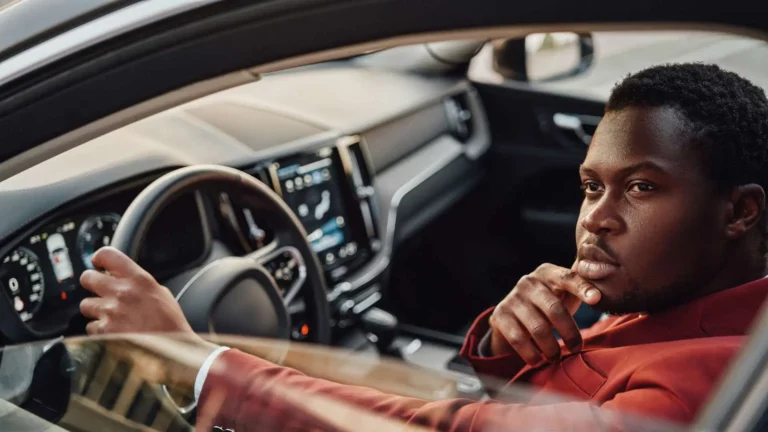Table of Contents
When people tend to ask themselves how they can fund the purchase of an automobile, often the first thing they consider is an auto loan. However, personal loans can be used to purchase a car, and it may be a more favorable choice under exceptional circumstances. Learning about the differences between individual and car loans and the opportunities and risks inherent in each type of credit is imperative. Can you use a personal loan to buy a car? This blog examines this topic and the factors you should be familiar with. Ready to burn some rubber? Here’s what you must know!
Personal Loans Vs. Car Loans
Understanding The Differences
Personal loans and auto loans differ in various aspects, including interest rates, payback terms, and the parameters under which they are available.
Read Related Article: Can You Buy a Car With a Check?
Interest Rates, Payment Conditions, and Loan Amounts
Auto loans are usually cheaper than personal loans due to the collateral of the purchased car. That is why, when a borrower fails to pay, the financier has the authority to repossess the car or vehicle, thus reducing its exposure and the interest rate. A personal loan is often unsecured; therefore, it tends to attract higher rates since the lender has the highest risk of non-recovery. The terms on car loan repayment are usually between 3 and 6 years, while personal loans commonly span 1 to 5 years. A personal loan may also have a lower credit limit than a car loan, which may be adequate to cover the cost of the car.
Secured Vs. Unsecured Loans
A car loan is secured where the car is collateral. This agreement usually leads to improved borrower rates, including interest rates. On the other hand, personal loans come in two varieties: Credit cards, which are secured and unsecured. Personal loans, such as unsecured ones, do not need any form of security offered to the lender and often carry higher interest rates. They are also more complicated to acquire, especially with a bad credit rating. Although secured personal loans may entail a lower interest rate, you need to put your home or savings as security, which can be disadvantageous in the event of job loss or any other crisis.
Factors To Consider
Before choosing between a personal loan and a car loan, it’s vital to consider many critical factors:
Credit Score
Of course, your credit score is the most critical factor determining the interest rate and loan terms you will be offered. Borrowers with good credit scores are most often eligible for lower interest rates on personal and vehicle loans. In many cases, a bad credit score will make it possible for an individual to be accepted for a secured car loan, as the borrowed car acts as security.
Read Related Article: Can You Transfer a Personal Loan to a Credit Card
Income
Your income determines the loan limit you qualify for and your ability to make monthly payments. Lenders will also consider your debt-to-income ratio to decide whether or not you can make loan payments alongside or in addition to other commitments. If you have an unstable or low income, then, to be more favorable, a car loan is preferable because of a lower interest rate, and that car can be purchased for a longer period.
Desired Car Type
You will also find that the type of vehicle you want to purchase may also determine your financing arrangements. Car loans may be the easiest way to purchase a used automobile from a dealership. However, if you buy a car from a private seller, mainly second-hand or any specialty car, a personal loan could be cheaper because some auto loan providers have prohibited loan limits for certain vehicles.
Advantages of a Personal Loan for Car Purchase
Flexibility
Compared to automobile loans, which are generally taken for purchasing an automobile, personal loans can be spent in any way at your convenience, since you decide how you would want to spend the borrowed amount. Such flexibility is beneficial if you plan to buy a car from a private vendor or have other expenditures, such as maintenance or modifications.
Quick Access to Funds
Personal loans are usually faster to approve and disburse than car loans. Though such loans are generally granted in full and without collateral, the amount is usually deposited into the borrower’s bank account, thus enabling them to buy the car immediately. This can come in handy when timing is critical, including when purchasing a highly wanted car or a vehicle at a wholesale price.
Use for Any Purpose
Unlike car loans, which are explicitly related to the purchase of a vehicle, personal loans allow the borrower to use the cash for any reason. This can include paying additional charges such as taxes, registration, or irrelevant expenses. This versatility makes personal loans attractive if you want to manage numerous financial obligations simultaneously.
Potential for Lower Monthly Payments
Personal loans, especially secured ones, are less likely to have shorter payoff terms than auto loans. This might lead to lower monthly installment costs, thus helping you manage your finances. Understandably, you need to be careful to realize that a long period means that the interest to be paid will also be high in the long run.
Longer Repayment Terms
Personal loans may have longer payback durations than car loans, leading to lower monthly payments. This can help borrowers better manage their financial flow. However, keep in mind that while monthly payments may be lower, the total interest paid over the life of the loan may be higher.
Building Credit
A personal loan can help you build or rebuild credit if used correctly. Paying bills on time and reducing the overall amount of credit utilization can help your credit over time, making obtaining credit easier. He said this is particularly helpful if you wish to boost your credit score but have few sources of credit.
Positive Impact on Credit Score (if Managed Responsibly)
Using a personal loan properly might improve your credit score. Making regular payments and minimizing overall credit use might help you enhance your credit rating and qualify for future loans. A well-managed personal loan can show financial responsibility, which is helpful if you want to develop or repair your credit.
Disadvantages of a Personal Loan for Car Purchase
Higher Interest Rates
The other disadvantage of purchasing a car using a personal loan is that the interest rates are usually higher than those charged if one uses an auto loan. Personal loans are generally unsecured, so most attract a higher interest rate. This can double the total loan cost and is dangerous as people prolong their repayment terms to get the needed money.
Costlier Borrowing Compared to Car Loans
Another potential downside of applying for a personal loan to acquire a car is that such financing attracts a higher interest rate than car loans. This is the case since many personal loans are typically unsecured, which implies that lenders have to take on more risk to give out loans and, therefore, are bound to charge higher interest rates. This can significantly increase the loan’s overall cost, making it a significantly more costly option in the long run.
Lack of Car as Collateral
Most personal loans are risky for the lenders because they are not secured, for instance, through the attachment of a car. This might seem like a good thing because you cannot forfeit your car in the process, but along with it come consequences like having to pay a higher amount of interest and having stricter conditions of approval. It’s also true that without using the car as security, you can be less careful about the loan and get into some form of financial adversity.
Read Related Article: Can You Buy Impounded Cars?
Increased Lender Risk
Personal loans are generally unsecured. Thus, they do not use the car as security. While this appears to be an advantage, it raises the lender’s risk, resulting in higher interest rates. Furthermore, without collateral, you may have fewer incentives to keep up with your loan payments, which could lead to financial issues.
Potential for Overspending
The liberty associated with personal borrowing occasionally tests borrowers’ spending habits. Consumers may also take more money than necessary or spend it on unnecessary items since the loan can be used however the client desires. This lack of financial discipline can lead to thirteen difficulties in repaying the loan, especially if the money is not only used to finance the car purchase.
Less Financial Discipline Compared to Car Loans
The freedom of personal borrowing can occasionally lead to excessive spending. Because the loan is not tied to the car’s value, you may borrow more than you need and use the money for non-essential expenses. This lack of financial discipline might lead to more significant debt levels and difficulties repaying the loan, especially if you don’t watch your expenditures.
When to Consider a Personal Loan
Limited Credit History
As you will see when we examine the details of a typical auto loan, it may be challenging to get one, especially if you do not have a good credit standing or even a credit history.
Difficulty Qualifying For a Car Loan
In such circumstances, a personal loan could be right, especially if one gets one at the correct rate. This is especially the case if you cannot part with the down payment expected of you in an auto financing deal or if your credit rating will not afford you the best auto finance rates.
Need for Quick Funds
Perhaps personal credit should be considered if you have an urgent need for a car and can’t wait for the approval of an auto credit, which might take a lot of time. This is particularly important if a vehicle is used for business or any other important activity that cannot wait in a person’s life.
Urgent Car Purchase
Personal loans often have a speedier approval process than car loans, making them excellent for urgent situations. Whether you need a car for work or personal reasons, a personal loan can help you get one quickly.
Read Related Article: Average Cost of Car Insurance In Michigan: Top Options For You
Specific Car Purchase Needs
If you buy an unconventional or used car or a car from a local dealer, you may learn that an auto loan is either unavailable or unsuitable. In such situations, the credit for a vehicle can provide the necessary sum without the conditions usually linked with an auto loan.
Unique Vehicle Requirements
There are limited occasions when a conventional car loan does not meet the objective. However, they include purchasing a nonconventional auto like a classic car, a vehicle bought from a private seller, or a car model that can hardly qualify for financing. Due to the personalized nature of a personal loan, it also allows you to make strange car purchases you would not be able to make under typical lending rules.
How To Prepare for Loans?
Weighing Your Options
Another requirement is always reading the agreement on personal and auto loans before taking them. Consider an interest rate, the interest paid on an annuity, the period to repay a loan, and other charges. To compare, plug each of the cuts into one of the many loan calculators available online to work out what your monthly disbursement would be and how much, in total, you would be paying.
Comparing Personal Loans and Car Loans
Consider all your alternatives before picking between personal and car loans. Consider both kinds of loans’ interest rates, repayment terms, and overall costs. Online loan calculators can help you estimate your monthly payments and overall financial commitment, allowing you to select the loan that best suits your needs.
Considering Your Financial Situation
Before applying for a loan, assess your present financial status. Consider your income, current obligations, and monthly expenses to estimate how much you can borrow and repay. This review will help you avoid overextending yourself financially and ensure you can comfortably meet your loan commitments without straining your budget.
Seeking Professional Advice
If you are undecided about financing, talk to a financial advisor. They can provide expert advice based on the buyers’ financial capacity, credit profile, and other necessities for an auto purchase.
Consulting With a Financial Advisor
It is also essential to understand that a financial advisor, Beem, can help discuss different financing options that the borrower has not considered and, hence, help you make an ideal decision based on your planning.
Read Related Article: Why Car Insurance is Expensive in Florida (And How to Save)
Conclusion
Whether you take out a personal or car loan, how you finance your automobile is determined by several factors, such as credit status, income level, and the vehicle. Although personal loans offer convenience and ease of access to cash, the costs are relatively high compared to the credit limit, and there is a tendency to make unnecessary purchases.
Beem provides tailored financial advice and quick access to loan comparisons, allowing you to make informed decisions confidently. To improve your financial stability, you can try Beem, an app that’s a platform for financial guidance, assistance, and loan options. With Beem’s Everdraft™, you can get up to $1,000 without interest or due dates and explore ways to invest your funds for a better financial future. Download the app here.
FAQs for Can You Use a Personal Loan to Buy a Car
Is a personal loan or a car loan better for buying a car?
An auto loan is always better if you want low interest and purchase an entry-level car from a car dealer. Nevertheless, a personal loan could be arranged for one-of-a-kind or private items, where you would like to buy, or if you want that option.
Can I get a personal loan for a used car?
A personal loan can be used to buy a used vehicle if it is obtained from an individual or does not conform to auto loan standards.
Will a personal loan affect my car insurance?
Borrowing money through a personal loan to purchase a car does not impact your auto insurance. However, there are reported instances in which the kind of car one buys and the car’s worth determine the insurance prices
















































